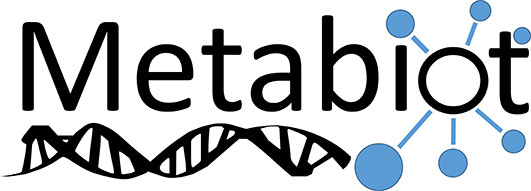Hygiene and Quality of Poultry and Pig Products (HQPAP) Unit of the Ploufragan-Plouzané-Niort Laboratory
Head of Unit: Marianne Chemaly
Deputy Head of Unit: Anaëlle Kerouanton Le Gall
Reference activities
The unit holds four National Reference Laboratory mandates on:
- salmonella;
- avian salmonellosis;
- campylobacter;
- avian botulism.
Surveillance activities
The unit contributes to the monitoring of zoonotic bacteria, and in doing so builds up and maintains the Agency's biological assets. These assets are made up of strains of Salmonella (more than 20,000), Campylobacter (more than 5,000), Listeria, Yersinia and C. botulinum. These are obtained from mandatory controls, surveillance and control plans, epidemiological investigations and research projects. The unit also keeps samples (broths, DNA) from diagnostic tests carried out in cases of suspected animal botulism.
Information on these strains and samples is stored in databases that can be used for investigative purposes in the event of health alerts on farms. The unit recommends surveillance and control plans to the Directorate General for Food. In this regard, it may be required to carry out analyses or collect strains.
In addition, the unit's scientists participate in working groups of the Surveillance platform for food-chain safety (SCA), and contribute to articles of the Epidemiological surveillance platform for animal health (ESA).
The unit also conducts expert appraisal work as part of ANSES's response to formal requests and, at the European level, for the European Food Safety Authority (EFSA).
Lastly, the HQPAP Unit monitors standards relating to methods of detection, quantification and characterisation of bacteria of interest.
Research activities
The unit's research focuses on the control of zoonotic bacterial agents in the poultry, swine and now also cattle sectors, through a multidisciplinary – and increasingly inter-sectoral – approach. The main bacteria studied are Salmonella, Campylobacter, Listeria, Yersinia, Clostridium botulinum and Clostridioides difficile.
Research is based on the "One Health" concept, which aims to address study topics by taking into account the links between human health, animal health and environmental management. The projects extend "from farm to fork", "from field to sequencing lab" and are at the interface between animals, consumers and their environment. Because of their frequently multidisciplinary and inter-sectoral nature, the projects are often carried out in conjunction with the laboratory's other experimental units and departments (SPPAE, SELEAC, Episabe, PBER, etc.).
Three research themes are implemented: prevalence, risk factors and molecular epidemiology; the host-pathogen relationship; and control measures.
Metabiot contracted unit

Research will therefore be conducted on the interactions between bacteria that pose risks to human health, and their hosts, all throughout the food production chain, with a twofold ultimate objective:
- optimise animal feed in order to limit levels of bacteria transmissible to humans in the animals' digestive systems;
- better understand the interactions that occur between the animal microbiota in products such as meat, and that found on surfaces in agri-industrial environments, in order to determine their role in the circulation of pathogenic bacteria.
Main ongoing projects for the HQPAP Unit
Trackspore (2020-2021)
Development of WGS tools to discriminate the spore-forming bacteria Clostridium botulinum and Bacillus cereus
Funding: AgriFood Transition Carnot Institute
Partner: ADRIA Agri-food expertise centre, Quimper
Discover (2020-2022)
Discovering the sources of Salmonella, Campylobacter, VTEC and antimicrobial resistance
Funding: One Health EJP
PAMSHA (2020-2022)
Production and analysis of metadata to reduce the risk of high-Salmonella-shedding pigs being introduced into the food chain
Funding: Brittany Region
Partner: Conservatoire National des Arts et Métiers (CNAM, Agri-food Chair)
Sacacir (2020-2021)
Study of Salmonella and Campylobacter circulation between the poultry and cattle sectors
Funding: Anses
Partners: Ploufragan-Plouzané-Niort Laboratory (Episabe and PBER units)
MOMIR-PPC (2018-2021)
Monitoring the gut microbiota and immune response to predict, prevent and control zoonoses in humans and livestock in order to minimize the use of antimicrobials.
Funding: One Health EJP
PathoGaz (2019-2021)
Health impact of mesophilic agricultural anaerobic digestion: how can the potential spread of pathogenic and/or antimicrobial-resistant strains be limited?
Funding: Ademe
Partners: Inrae and the Mycoplasmology, Bacteriology and Antimicrobial Resistance Unit (Anses)
Project completed
ANIBOTNET (2016-2019)
Animal botulism: development of innovative tools for diagnosis, prevention, control and investigation